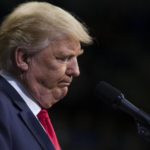Gothamist: Local food pantries say demand at their sites is already rising as federal food assistance delays stretch into their fourth day, without a clear answer on when aid could resume in New York.
New Yorkers who rely on the Supplemental Nutrition Assistance Program, known as SNAP, to afford groceries have been feeling insecure for weeks. The U.S. Department of Agriculture announced it would freeze SNAP payments beginning Nov. 1 due to the federal government shutdown.
Now it’s unclear when or whether participants will receive their benefits this month.
President Donald Trump said on social media Tuesday he will only pay benefits when the government reopens. But a White House spokesperson appeared to walk back that threat hours later, saying that the administration was “fully complying” with the court order requiring it to pay for food benefits this month. Earlier in the week, the administration told two federal judges it would use contingency funds to pay for SNAP but that it would only cover 50% of benefits.
Emergency food providers are bracing to meet surging needs, stocking up on supplies and planning more distribution events. Benefits are staggered throughout the month, which means more people will go hungry the longer it takes to restart payments. How soon recipients could get their partial payments could vary because benefits are administered on a state level and officials will have to recalculate recipients’ benefit amounts before loading them onto their SNAP cards.
“It’s unbelievable,” said Ashley Miles, 27, who was supposed to receive her benefits on Nov. 1 but now has just $66 left for groceries. “It makes me feel very anxious.”
Miles is among the 1.8 million New York City residents who rely on the program. She said until she gets her next SNAP payment she’ll cut back on buying meat and get free meals from Fountain House, a clubhouse that provides community and resources for people with serious mental illness.
Ciara Ruddock, program director of the research unit at Fountain House, said the organization is providing extra meals for its members so they’re guaranteed three a day. She said about 85% of the members rely on SNAP.
“Not having access to a basic living necessity is aggravating and frustrating and difficult,” she said. “Adding additional stressors is not good for anyone’s mental health.” Pantries are reporting more demand across the city. Zac Hall, senior vice president for the Food Bank of NYC, said nearly 90% of their pantry partners reported more people at their sites over the weekend.
”One of our Brooklyn pantry partners said that one of their visitors had their children and their aged parent were crying because they didn’t know what they were going to do and where they were going to turn to for food,” he said Monday on WNYC.
Hall said most of the pantries that were open over the weekend reported giving out less food or having to turn people away.
Elizabeth McCarthy, CEO of the Community FoodBank of New Jersey, said demand there was up 25% Saturday and this number was likely “the tip of the iceberg.”
State officials have blasted the Trump administration for failing to use additional funds to fully pay SNAP benefits. New Jersey Gov. Phil Murphy this week deployed the National Guard to support food distribution efforts.
“We often hear that families are choosing between rent and utilities or medicine and food. Well now they’re probably going to be faced with other hard decisions,” said Jilly Stephens, CEO of City Harvest, the city’s largest food rescue organization. “Do they slow down rent payments or utility payments? It’s really a very precarious position that our neighbors are in.”







